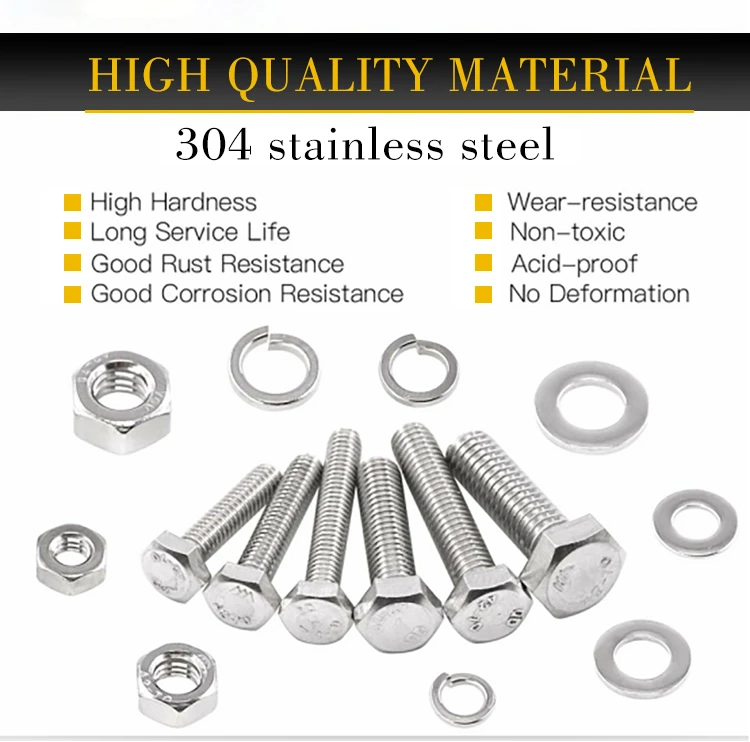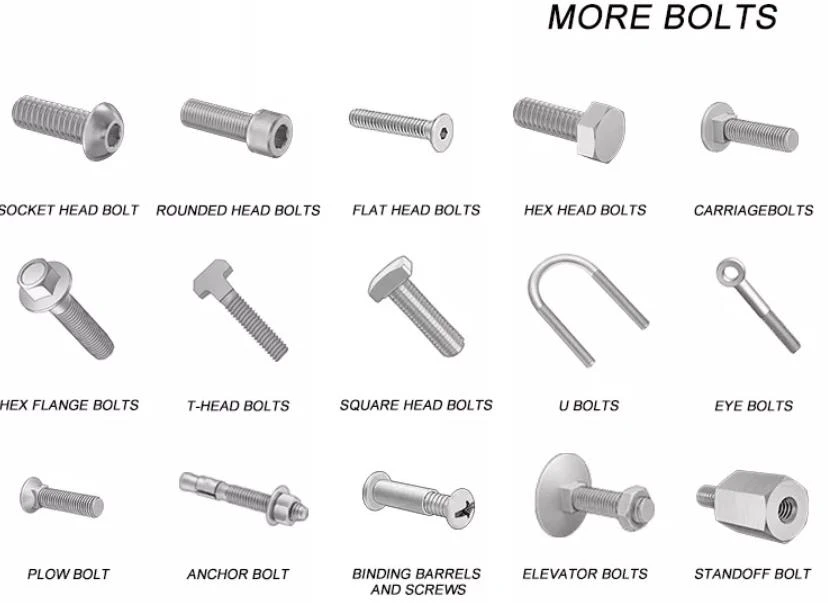Introduction:
Hexagon bolts, also known as hex bolts or hex head bolts, are widely used fasteners known for their six-sided head and threaded shaft. They are essential components in various industries and applications due to their versatility, strength, and reliability. This article provides an overview of different materials used in hexagon bolts, their usage characteristics, and the demand for these fasteners in international markets.

Materials:
Hexagon bolts are available in various materials, each offering specific properties to meet different application requirements. The common materials used for hexagon bolts include:
Carbon Steel: Carbon steel hexagon bolts are cost-effective and widely used due to their excellent strength and durability. They are suitable for general-purpose applications where high strength and corrosion resistance are not critical factors.
Stainless Steel: Stainless steel hexagon bolts are highly corrosion-resistant and suitable for applications where exposure to moisture or corrosive environments is expected. They are commonly used in industries such as marine, food processing, and chemical processing.
Alloy Steel: Alloy steel hexagon bolts are made from steel combined with other elements, such as chromium, molybdenum, or nickel, to enhance their mechanical properties. They offer higher strength, toughness, and resistance to wear and fatigue, making them suitable for demanding applications.

Brass: Brass hexagon bolts are known for their excellent electrical conductivity and corrosion resistance. They are often used in electrical and electronic equipment, as well as in decorative applications where their aesthetic appeal is desired.
Usage Characteristics:
Hexagon bolts possess several usage characteristics that contribute to their popularity and wide-ranging applications:
Versatility: Hexagon bolts can be used in diverse applications, ranging from machinery assembly, construction, automotive, aerospace, electronics, and furniture manufacturing. Their standardized design allows for easy interchangeability.
Secure Fastening: The six-sided head of hexagon bolts provides a secure grip, enabling efficient tightening using a wrench or socket. This ensures reliable and stable connections, even under high loads and vibrations.
Ease of Installation: Hexagon bolts are designed for straightforward installation, requiring simple tools for tightening and loosening. This contributes to faster assembly and maintenance processes.

Reusability: Hexagon bolts can be easily removed and reused without compromising their performance or integrity. This feature makes them cost-effective and environmentally friendly.
International Market Demand:
The demand for hexagon bolts in international markets is substantial and continues to grow due to several factors:
Industrial Development: In countries experiencing rapid industrialization and infrastructure development, such as China, India, and Southeast Asian nations, there is a significant demand for hexagon bolts for construction, manufacturing, and transportation sectors.
Automotive and Aerospace Industries: The global automotive and aerospace industries demand high-quality hexagon bolts for vehicle manufacturing, maintenance, and repair. The increasing production of automobiles, aircraft, and related components drives the demand for these fasteners.
Export Market: Hexagon bolts are widely traded in the global market, with manufacturers and exporters catering to the needs of construction, machinery, and various industries worldwide. Countries known for their manufacturing expertise, including Germany, Japan, the United States, and China, are key players in the global hexagon bolt market.
Infrastructure Projects: Large-scale infrastructure projects, such as bridges, railways, and power plants, require a substantial quantity of hexagon bolts. Developing regions and emerging economies invest in infrastructure development, driving the demand for these fasteners.
Conclusion:
Hexagon bolts are versatile fasteners used in a wide range of industries and applications. With various materials available, such as carbon steel, stainless steel, alloy steel, and brass, they offer different properties to suit specific application requirements. Their usage characteristics, including versatility, secure fastening, ease of installation, and reusability, contribute to their widespread adoption. The international demand for hexagon bolts remains strong, driven by industrial development, automotive and aerospace industries, export markets, and infrastructure projects. As global manufacturing and construction activities continue to expand, the demand for hexagon bolts is expected to grow further.

